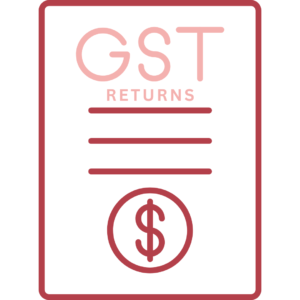Call us now:
GST and Other Indirect Tax
GST Registration Online
✅ GST Application Filing in Just 2 Business Days – Starting at ₹499 ₹749 (T&C Apply)
✅ Hassle-Free Process for New GST Registration, Status Tracking, and Clarifications.
✅ Customized Solutions for Individuals, E-commerce Sellers, and Government Entities.
✅ End-to-End Support – CA-assisted document submission, GST filing, and GSTIN procurement.
✅ Advanced Assistance with GST e-invoicing, ledger management, and invoice tracking.
Register Now with AdvocateAdda and simplify your GST compliance today!
Benefits of Registering for GST in India
Boost Your Business with GST Compliance
1. Legal Recognition as a Verified Supplier
Registering under GST grants your business official status, allowing you to legally trade goods and services across India, enhancing your brand's credibility.
What is GST Registration?
GST registration is mandatory for businesses with a specified annual turnover or those dealing in inter-state trade. This ensures compliance under the Goods and Services Tax (GST) framework, allowing you to legally collect and remit taxes.

Who Needs GST Registration?
Businesses with turnover above ₹40 lakh (₹20 lakh for special category states).
E-commerce sellers or aggregators.
Service providers operating across multiple states.
Individuals under reverse charge mechanism (RCM).
Benefits of GST Registration:
- Legitimacy: Legal authorization to collect GST.
- Input Tax Credit: Avail credit on inward supplies.
- Expand Market: Trade seamlessly across states.
- Compliance Benefits: Avoid penalties and build trust with customers.
Required Documents for New GST Registration
- Applicant’s PAN Card
- Aadhaar Card
- Proof of Business Registration (e.g., Incorporation Certificate)
- Identity and Address Proof of Promoters/Directors with Photographs
- Business Location Address Proof
- Utility Bill (Electricity or other) for Office Address
- Bank Account Details (Statement or Canceled Cheque)
- Digital Signature Certificate
- Letter of Authorization or Board Resolution for Authorized Signatory


Mandatory GST Registration Categories
GST registration is mandatory for the following individuals and entities, regardless of the threshold limit:
- Interstate Suppliers (Threshold: ₹20 lakhs/₹10 lakhs for services, handicrafts, and handmade goods)
- Casual Taxable Persons involved in taxable supplies
- Individuals liable to pay tax under the Reverse Charge Mechanism
- Non-Resident Taxable Persons making taxable supplies
- E-commerce Operators and sellers on such platforms
- Individuals required to deduct tax under Section 51
- Input Service Distributors
- Agents or individuals making taxable supplies on behalf of others
- Individuals liable under Section 9(5)
- Other individuals as notified by the government
Step-by-Step Guide for GST Registration Process
1️⃣ Step 1
Get in touch with our experts.
2️⃣ Step 2
Provide your business information.
3️⃣ Step 3
We will file your GST registration application.
4️⃣ Step 4
Receive your GSTIN (Goods and Services Tax Identification Number).
Types of GST Registration
Here are the main types of GST registered in India:
CGST is applied to the supply of goods and services within a single state. It is collected by the central government and helps avoid double taxation.
- Applicability: Relevant for intra-state transactions.
- SGST is applicable to the sale of goods and services within the borders of a state. The revenue generated from SGST goes directly to the state government.
- Applicability: Used for intra-state sales alongside CGST.
- IGST is imposed on transactions that involve the supply of goods and services between two or more states. It allows for the seamless transfer of goods across state lines.
- Applicability: Necessary for inter-state transactions, ensuring tax is collected at the point of consumption.
- IGST is imposed on transactions that involve the supply of goods and services between two or more states. It allows for the seamless transfer of goods across state lines.
- Applicability: Necessary for inter-state transactions, ensuring tax is collected at the point of consumption.

Types of Taxable Persons under GST
Regular Taxpayers
- Businesses that exceed the turnover threshold in a financial year must register under GST.
- They are required to register in each state or union territory where they supply goods or services.
Casual Taxable Person
- Engages in occasional transactions in states or territories where they don’t have a fixed place of business.
Non-Resident Taxable Person
- Supplies goods or services temporarily without having a permanent business or residence in India.
eCommerce Operators and GST
- Operators must collect 1% TCS at the source and register under GST. This applies to those managing digital platforms or facilitating online sales of goods and services.
Documents Required for GST Return Filing:
- Certificate of Incorporation
- PAN Card of the Company
- Articles of Association (AOA)
- Certificate of Incorporation
- PAN Card of the Company
- Articles of Association (AOA)
- Memorandum of Association (MOA)
- Resolution Signed by Board Members
- Identity & Address Proof of Directors
- Digital Signature
- Director’s Proof (Any 2):
- Telephone/Electricity Bill
- Driving License
- Bank Statement
- Ration Card
- Passport
- Voter ID
- Aadhaar Card
For LLP
- PAN Card of LLP
- LLP Agreement
- Partners’ Names & Address Proof
For Individual/Proprietorship
- PAN Card
- Address Proof of Proprietor
GST Return Filing Online
✔ Easy GST Return Filing: Meet deadlines with GST returns filed by senior experts.
✔ Comprehensive Support: Monthly, quarterly, and annual filing assistance available.
GST Return Filing - An Overview
What is GST Return Filing?
GST return filing is a mandatory process where businesses report their transactions, including sales, purchases, GST collected, and input tax credit (ITC). It ensures smooth functioning of the GST framework and compliance with tax regulations.
Frequency of Filing.
Businesses registered under the GST Act, 2017, must file returns monthly, quarterly, and annually. GST returns summarize data from invoices, receipts, and payments.

GST Login Portal
✔ Expert Guidance:
Our GST experts assess your business needs and assist you with GST Registration, GSTIN, and resolving any GST-related queries.
✔ Online Assistance:
Get real-time support from in-house GST experts, simplifying the entire GST process for your business.
✅ Revocation of GST Registration: Get your GSTIN reactivated in 3 easy steps with expert assistance for quick, reliable service.
✅ Fast & Secure Process: 100% online, hassle-free, and compliant with all government regulations, ensuring smooth reactivation without delays.
- Certificate of Incorporation
- PAN Card of the Company
- Articles of Association (AOA)
- Memorandum of Association (MOA)
- Resolution Signed by Board Members
- Identity & Address Proof of Directors
- Digital Signature
- Director’s Proof (Any 2):
- Telephone/Electricity Bill
- Driving License
- Bank Statement
- Ration Card
- Passport
- Voter ID
- Aadhaar Card
For LLP
- PAN Card of LLP
- LLP Agreement
- Partners’ Names & Address Proof
For Individual/Proprietorship
- PAN Card
- Address Proof of Proprietor
Revocation of GST Registration Cancellation
If you don’t file GST returns for three consecutive years, your GSTIN will be cancelled — but Vakilsearch can help!
Revocation of Cancellation of GST Registration - An Overview
GST has become a key topic in India, yet many people remain uncertain about various processes—be it registration, return filing, or dealing with tax forms like challans and e-way bills. If you’ve mistakenly registered for GST but later realize you’re eligible for cancellation (typically if your company’s annual turnover is below ₹20 lakhs, including sales and unregistered purchases), you can apply to cancel your GST registration.
When GST registration is cancelled, the taxpayer is no longer liable to file returns or pay GST. However, businesses for which GST registration is mandatory must be cautious. Continuing business operations after cancellation without reapplying for GST could lead to severe penalties, as it is considered an offence under the GST Act.
Key points to consider after cancellation:
- You are no longer required to file GST returns or collect GST from customers.
- If your business mandates GST registration but you continue operations after cancellation, you risk legal penalties.
In some cases, GST registration may be cancelled by authorities. If this happens and you want to continue operating under GST, you can apply for a revocation of cancellation. This process is covered under Rule 23 of the CGST Rules, 2017.
The revocation process allows businesses to re-activate their GST registration and continue normal operations. You must file the necessary application forms and follow the prescribed procedure within the specified timeframe to ensure compliance.
For more information on this topic, you can visit advocateadda.com, where we provide detailed legal guidance on GST matters and other business-related legal concerns.
Indirect Tax Solutions in India
✔ Expert Filing by Top Tax Professionals
Our team of tax experts ensures seamless filing of all indirect taxes. We offer comprehensive services, including documentation, registration, and online support to guide you through the process. *Terms & Conditions apply.
✔ Simple 3-Step Process, 100% Online
Enjoy a hassle-free experience with our easy three-step process. Get all your tax concerns handled efficiently—fully online!
Indirect Tax Response in India - An Overview
In India, businesses must navigate several key steps when handling indirect taxes. The first step is identifying which indirect taxes apply to the business, such as GST, customs duty, excise duty, or service tax.
If the tax authorities issue a show cause notice, it is crucial to respond promptly. A well-prepared response should include all the necessary details and evidence to support the business’s position. Additionally, it may be necessary to provide supporting documents. Ensuring that these documents are accurate and submitted on time is essential.
Seeking expert guidance during this process is advisable to avoid errors and ensure compliance with tax regulations.

Remission of Duties and Taxes on Exported Products (RoDTEP)
Register for RoDTEP to Claim Reimbursement Get your tax and duty reimbursement by registering under the RoDTEP scheme. Our industry experts guide you through a simple 3-step registration process. *Terms & Conditions apply.
Hassle-Free RoDTEP Registration, Fully Covered Documentation We ensure a secure and smooth registration process with complete documentation support—all done 100% online for your convenience!
RoDTEP - Overview
RoDTEP, or Remission of Duties and Taxes on Exported Products, is a scheme introduced by the Indian government to replace the Merchandise Exports from India Scheme (MEIS). The main aim of RoDTEP is to make Indian exports more competitive by reimbursing exporters for various taxes and duties that are not currently being refunded. These can include state and central taxes, electricity duties, and fuel costs used in transportation. By covering these additional costs, RoDTEP seeks to create a level playing field for Indian exporters in the global market and boost the country’s exports.
The scheme applies to all exporters, including small and medium enterprises (SMEs), and came into effect on January 1, 2021. It is expected to help exporters significantly, especially those struggling due to the financial impact of the COVID-19 pandemic, by reducing their overall cost of production and exports.
What is the RoDTEP Scheme?
The RoDTEP Scheme was launched to comply with global trade rules and ensure that Indian exporters are not at a disadvantage due to unrefunded taxes and duties. It aims to replace MEIS, which faced challenges under World Trade Organization (WTO) norms.
Under the RoDTEP scheme, exporters can claim reimbursement for:
- State and central taxes
- Electricity duties
- Fuel used for transportation
- Other unrefunded taxes and duties
The scheme helps to lower the overall cost of exporting goods, making Indian products more competitive internationally.
Evolution of Export Promotion Schemes in India
Export promotion in India has undergone significant changes over the years. Here are some major milestones:
Import Substitution (1950s-60s):
India initially focused on developing domestic industries and reducing reliance on imports, with export promotion being a secondary priority.Trade Liberalization (1991):
Faced with a balance of payments crisis, India introduced economic reforms, including measures to promote exports, establish Export Processing Zones (EPZs), and provide tax incentives.Foreign Trade Policy (2004-2009):
Aimed at increasing India’s share in global trade, the policy introduced schemes like the Focus Market Scheme (FMS), Focus Product Scheme (FPS), and Vishesh Krishi Gram Upaj Yojana (VKGUY), which provided sector-specific incentives to exporters.Goods and Services Tax (GST) (2017):
The introduction of GST replaced several indirect taxes with a unified tax system, affecting export promotion by transitioning from tax incentives to a refund mechanism.New Foreign Trade Policy (2021-2026):
This policy aims to double India’s exports by 2025 and introduced the RoDTEP scheme to provide exporters with tax and duty remissions.
Export Incentives: MEIS vs. RoDTEP
MEIS (Merchandise Exports from India Scheme):
MEIS provided duty drawbacks on import duties and taxes paid on inputs used for exported goods, covering a wide range of sectors like textiles, engineering, and pharmaceuticals.RoDTEP (Remission of Duties and Taxes on Exported Products):
RoDTEP is broader in scope than MEIS. In addition to import duties, it also covers other indirect taxes such as state taxes and electricity duties, offering a more comprehensive reimbursement system.
Export Incentives and the World Trade Organization (WTO)
India’s export incentive schemes, including MEIS, faced scrutiny under the WTO for not being compliant with international trade norms. RoDTEP has been designed to address these concerns and ensure India’s export promotion efforts are in line with global trade regulations.
Features of RoDTEP Scheme
- Comprehensive coverage of unrefunded taxes and duties
- Eligibility: Open to all Indian exporters, including SMEs
- Reimbursement of state and central taxes, electricity duties, and fuel costs
The scheme plays a crucial role in enhancing the competitiveness of Indian exporters, helping them to thrive in the global marketplace.





